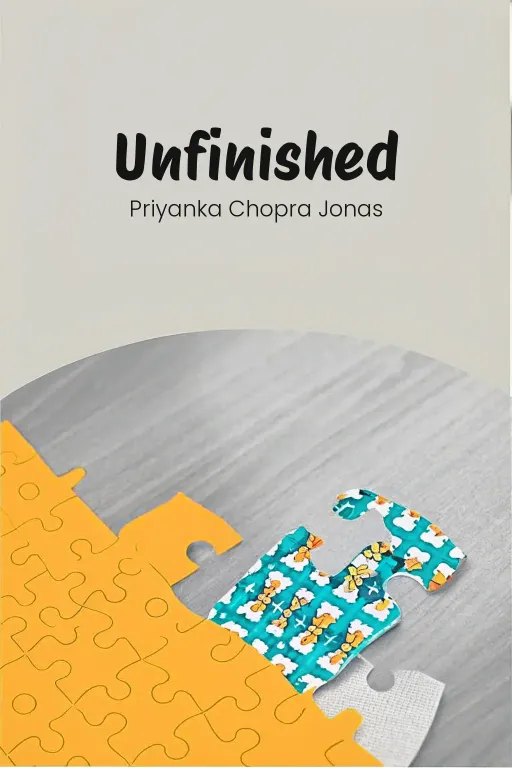
Serve Others: Find Your Light
Podcast by Beta You with Alex and Michelle
How Sikh Wisdom Can Transform Your Life
Serve Others: Find Your Light
Part 1
Alex: Okay, quick question: when was the last time you really stopped to think about what it means to live with compassion and purpose? Especially, you know, in a world that often feels so divided and, well, chaotic? Michelle: Yeah, it's a good one, Alex. I mean, for most people, trying to figure that out probably feels like juggling chainsaws while blindfolded, right? But what if there was, like, a framework to help ground us? A way to actually meet hate with kindness, individuality with community, and challenge with grace? Alex: Exactly! That's what Simran Jeet Singh's book, “The Light We Give”, is all about. Through Sikh philosophy, Singh encourages us to explore love, justice, and humility—not as just nice ideas, but as concrete tools for real change. The book brings together Sikh teachings and Singh’s own experiences with racism and identity, arguing that empathy and selfless service—“seva”, as Sikhs call it—are essential for living authentically and healing together. Michelle: Okay, sounds good, but let's be real. Talking about love and resilience is one thing. Actually applying it when you're facing real prejudice and injustice? That is a whole different ballgame. So today, we're going to dig into how this philosophy actually works in the real world. Alex: Right, and we'll break it down into three core parts. First, we’ll explore the basic teachings of Sikhism—those values that push people to act with kindness and strength. Then, we’ll look at the power of “seva”, or selfless service. You know, how something as simple as sharing can create ripples way beyond just yourself. Michelle: And finally, we’ll look at how these teachings can affect society as a whole, from helping us grow as individuals to tackling those really deep-seated biases. Think of it as a roadmap: learn the philosophy, put it into action, and then see how it can reshape the world around us. Alex: So whether you're just curious or you're actually looking to find your own light in all of this, get ready for a thought-provoking look at some wisdom that feels both timeless and incredibly relevant right now. Michelle: Alright, let's do this.
Understanding Sikh Wisdom
Part 2
Alex: So, let's really dig into the philosophical heart of Sikhism, shall we? Starting with “Ik Oankar”—this central idea that all of creation is rooted in divine oneness. It's essentially a call to see everyone and everything as fundamentally interconnected. It’s not just some beautiful theological idea; it’s an ethical responsibility, really. Michelle: Right, but my brain immediately goes to the practical. How do you translate "The universe is one" into everyday actions, especially when division seems to be the norm? Think about it—social hierarchies, political divides, even just office politics. How are we supposed to feel like "one family" when someone's fighting over the last parking spot? Alex: Exactly, and that’s exactly why Sikhism doesn’t just leave “Ik Oankar” hanging as some abstract philosophical idea. It gets practical, and one example can be seen in langar. Take the Sikh tradition of langar, those community kitchens in gurdwaras that offer free meals to absolutely anyone who walks in. Rich, poor, any religion—doesn't matter. Everyone sits together, eats the same meal. The act is so simple, but the symbolism is really profound. Michelle: Okay, so langar is like putting humility and equality into action, with food as the medium? I’m on board with that. But beyond the symbolism, how much does that dinner really shift things? I mean, does feeding someone actually break down those mental barriers we have about seeing others as part of the same human family? Alex: Well, it’s not about one single meal, you know? It’s about the practice of retraining your perspective. Sitting next to someone completely different, serving without expecting anything back—it gradually erodes that "us versus them" mentality. It’s almost like a training ground for the philosophy itself. Michelle: Interesting. I like that—hands-on theology. But—and forgive my skepticism—how do we avoid turning it into a performance? People are complex, and even kindness can be twisted, right? "Look at me, so selfless! #blessed." Alex: Aha, that’s where seva, selfless service, comes in. It’s not about patting yourself on the back, see? It’s about acting purely for the benefit of others, fueled by love and compassion. The Sikh philosophy actually says service isn't just for the recipient—it transforms the giver, too. It’s about breaking free from ego and self-centeredness, connecting with the divine essence that Sikhism says exists in everyone. Michelle: Here I was, thinking Sikhism was all about cool turbans and awesome vegetarian food. But this is…deeper. So, you’re saying it's like a spiritual workout, building compassion while keeping your ego in check? Alex: Precisely. And it's incredibly practical, especially in a crisis. Remember the peak of the COVID-19 pandemic? Sikh communities transformed gurdwaras, those very places for langar, into hubs for giving food, masks, and supplies. No questions asked. Seva is about actions, not labels or expectation. Michelle: That's compelling. It elevates the charity conversation by removing the transactional element. But someone who isn’t Sikh—what prevents them from fully embracing seva? Is it culture, or are we hardwired to keep score? Alex: Well, most of us are conditioned to expect a return on our investment, aren’t we? Even if it’s just a good feeling or validation. Sikhism asks us to move past that, you know? Even small things—helping someone with groceries without expecting thanks—can count. It's about focusing on the intention, not the result. Michelle: Makes sense. Now, let’s pivot to something thornier—fear. Nirbhau, this idea of fearlessness. Because let’s be real, fear—of rejection, failure, whatever—shapes so much of people’s behavior. Alex: Very true. But nirbhau isn’t about denying fear. It’s about cultivating courage, rooted in your deepest ethics and spiritual convictions. Sikh history is full of examples, but Guru Tegh Bahadur's sacrifice is probably the most powerful. He defended the religious freedom of people who weren't even his own. He risked his life, and ultimately gave it up, for universal dignity and justice. Michelle: That's next-level, almost superhuman fearlessness. How does that apply to me? I’m not facing down tyrants. I'm dealing with personal anxieties and the occasional passive-aggressive email. How does nirbhau translate to everyday life? Alex: That’s the beauty of it, really. You don’t have to be a martyr to live nirbhau. Let your sense of right and wrong guide you, even when it's uncomfortable. Maybe it’s speaking up when a colleague's idea gets dismissed, even if that puts you on the spot. Or challenging injustice in your community, knowing that might bring criticism. Michelle: So, fortifying your values through spiritual connection? I like that as a counterweight to our constant need for comfort and safety. But what happens when you’re met with resistance, or worse? Alex: That’s where all these threads of Sikh wisdom weave together. If you approach others with compassion (“Ik Oankar”), if your actions are grounded in selflessness (seva), and your courage comes from upholding truth (nirbhau), it creates a moral pathway that can sustain you—even during extreme hardship. Michelle: You're painting a picture of profound moral clarity in a world that often feels really morally ambiguous. I get the appeal – a moral compass to tackle the messy stuff head on.
Practical Application of Seva
Part 3
Alex: So, with that base to work from, we can dive into how these principles actually become actions. Think about “seva”, or selfless service. Sikhism isn’t just about abstract ideas like oneness or courage, you know? It's really concerned with how those values play out in the real world. Today, we’re exploring how seva connects those high-level theories to day-to-day practice, showing how Sikh principles can create positive change, bit by bit, in everyday life and across entire communities. Michelle: Okay, so let's get down to earth. How does this whole idea of seva, which sounds great in theory, you know, actually work out in the daily grind? Most of us are just trying to juggle work, family, and, well, our own egos, to be honest. Alex: That’s where the genius of seva comes in. It’s not like you have to completely transform your life or make these grand, sweeping gestures. Seva meets you exactly where you are. Take langar, for example, that community meal served at every Sikh gurdwara. Preparing and sharing food? That’s an expression of love, humility, and equality right there. Everyone’s welcome, no matter your background, faith, or social status – everyone eats together as equals. Seems simple, but it’s powerfully symbolic, isn't it? Michelle: Hang on a sec. You're feeding people, sure, but you're also saying just eating together breaks down walls too? I mean, I get the basics—bring people together, share a meal—but does that really undo centuries of division just like that? Alex: Well, it's not a miracle cure, but it's a solid starting point. Think of langar as a little model of what the world could be—a space that totally rejects social hierarchies. When you're sitting on the floor, sharing the same simple meal, it doesn’t matter if you’re super rich or struggling to make ends meet. Eating together, it just humanizes everyone. It’s about actively practicing inclusion, pushing back against those deep-seated social divisions. Michelle: So, it’s like a reset button for our "us versus them" way of thinking—but served with dal and roti. Alex: Exactly! And it doesn’t stop at the gurdwara doors. Remember during the pandemic? Sikh communities worldwide used their principles of seva to tackle really urgent needs. In the UK, for instance, gurdwaras were dishing out thousands of meals daily to frontline workers and vulnerable folks. It was more than just food—it was a clear message of solidarity, saying we’re all connected, especially when things get tough. Michelle: That's pretty impressive. Turning a philosophy into real action on that scale. But here's the thing: a lot of people still operate on a kind of "you scratch my back" basis, right? "If I do this good thing, I'll either get some recognition or feel good about myself." How does seva break through that kind of thinking? Alex: It's a complete change in perspective. Seva asks you to serve without expecting anything back, not even a thank you. It’s about shedding your ego and just focusing on making things a little easier for someone else. There’s a story Singh tells about a Sikh man helping an elderly woman who was prejudiced against him. She didn’t even recognize his kindness because she was just blinded by her own prejudices, you know? But he helped her anyway, because seva isn’t about how people react—it’s about your intention. Michelle: Wow, that’s a high bar. Most "acts of service" these days feel kinda transactional, even if we don't realize it. Like, “I held the door open—where’s my thank you?” And here’s this guy saying, "You might be scared of me, but I’m going to act out of love regardless." How do you even begin to develop that level of humility? Alex: It starts small. Sikh teachings suggest that seva doesn’t have to be this huge, dramatic thing. It can be woven into your everyday life. Offer your time to listen to someone who’s having a hard time, help a neighbor—without keeping score! Or take vand chakna, the practice of sharing what you have. Even setting aside a bit of your income or groceries for those in need can be transformative, for you and for them. Michelle: Okay, but the skeptic in me has to ask – what happens when people take advantage of your good nature? How do you balance being selfless with protecting yourself? Alex: That’s where intention comes back into play big time. Sikh philosophy teaches that true seva comes from a pure heart. You’re not in charge of how others take or respond to your actions. Actually, seva is not about controlling how things turn out – it’s about aligning yourself with values of love and compassion. Those qualities act like a compass, guiding you even in situations where your kindness isn’t returned. Michelle: I get it—it’s about shifting from needing outside approval to feeling right inside. But let's talk about scaling this up for a second. Individual kindness is awesome, but how does seva address the bigger problems, those systemic issues? Feeding the hungry is great, but what about the reasons they're hungry in the first place? Alex: That’s where seva gets really interesting. It’s not just personal, it’s also a way to stand up against injustice. Look at langar again. It wasn’t just about feeding people, it was, and is, a deliberate challenge to social hierarchies, like caste discrimination. Refusing to treat people differently based on caste in the langar is a powerful statement against structural inequality. And through Sikh history, there are so many examples of seva used as a form of activism, whether it’s standing up for human rights or organizing around social justice causes. Michelle: So, in a way, seva is not just about being nice—it’s about redefining what "good" actually means. It shines a light on unfair systems while showing a better way, all through action. Not bad for something that started in a kitchen. Alex: Exactly! And because seva avoids being showy - it's not about putting on a performance, but about making a real difference—it bypasses some of the problems with modern charity models, like prioritizing image over actual results. Seva is about being real, asking, “How can I serve in a way that directly helps those who need it?” It’s what keeps it grounded and truly transformative. Michelle: So, we’ve got intention, humility, and action working together to create these ripples of connection. It’s refreshing in a world where it’s easy to feel overwhelmed by the enormity of the problems around us. Seva reminds us that even small actions, done with purpose, can really spread outward.
Personal and Collective Transformation
Part 4
Alex: Beyond individual acts, these practices “really” cultivate a broader mindset, one that emphasizes how interconnected everything is. And that naturally leads us into today’s theme: personal and collective transformation. Sikh wisdom isn't just about personal growth; it goes bigger, encouraging healing on a societal level and underscoring how universally relevant these ideas are. These values—love, resilience, and radical connection—they “really” guide how we evolve, both as individuals and as communities. Michelle: Expanding the impact, huh? So, it's about hitting both levels, that personal discovery stuff, and then how that energy translates into tackling injustice on a wider scale. It's like, the inner and outer work, two sides of the same coin, right? Alex: Precisely. Sikh philosophy “really” emphasizes that personal growth doesn’t happen in a vacuum. It goes hand-in-hand with a commitment to the greater good. When we transform ourselves—aligning with courage, love, and humility—we're also contributing to transforming our communities, breaking those harmful cycles. Take Jaswant Singh Khalra's story, for example. Are you familiar with it? Michelle: Yeah, the activist who challenged Punjab's police state back in the '90s, wasn't he? He uncovered this massive cover-up of extrajudicial killings. And believe me, going up against state-sponsored brutality is no walk in the park. Alex: You're not wrong there. Khalra’s activism truly embodies resilience. During a time when thousands of Sikhs were being abducted, tortured, and their bodies were ending up in unmarked graves, Khalra refused to stand idly by. He investigated, documented, publicized these atrocities, fully aware of the danger he was putting himself in. Michelle: And then, they came for him too, didn’t they? He was abducted, and tragically, never seen again. But his work, it didn't die with him. As far as I know, it sparked movements for justice, both in Punjab and internationally. Alex: Exactly. That’s the power of transforming adversity. Instead of giving in to fear or hatred, Khalra channeled immense courage and love into his fight for truth. And this is where Sikhism’s principle of nirbhau—fearlessness—really shines through. It's about grounding yourself so deeply in ethics and connection that even oppressive systems can't shake your resolve. Michelle: Hang on, let's dial back the hero worship for a second. Khalra's story is extraordinary, no doubt, but does it seem fair to expect the average person to demonstrate that level of resilience? Most people are just trying to get through the workday, pay the bills, maybe catch a relaxing show on the weekend. Alex: Absolutely fair point! Khalra's story is extraordinary, yes, but the principles behind his actions are accessible to all of us, even in smaller ways. Nirbhau isn't about never feeling fear, it's about stepping into courage to act in line with your values. In everyday life, maybe it's speaking out against microaggressions. Or simply standing by someone vulnerable, even if it’s uncomfortable or unpopular. Michelle: Okay, I get that. But fear isn't the only obstacle. Let's go back to Khalra—why didn't his work stop with his own victimization? What I'm asking is, why did his story resonate so widely and inspire collective action? Alex: Part of the answer lies in the Sikh principle of Ik Oankar, the interconnectedness of everything. When someone like Khalra refuses to give up on justice, they become a source of inspiration, reminding others of our shared humanity and our responsibility to act. It's radical connection at play—turning personal resistance into a shared movement. Michelle: And this radical connection idea… reminds me of Bhai Ghanaiya's story. The guy who offered water to enemies and allies on the battlefield, simply because he didn't see "enemies," just suffering human beings. Alex: Exactly. Bhai Ghanaiya lived and breathed Ik Oankar. When confronted by others in his army, people who questioned his compassion for the enemy, he simply replied, “I see no difference. I see God in all.” Michelle: Mic drop moment, right there. But in today's world, with division and hostility seemingly everywhere, how does anyone begin to practice that kind of radical connection? It seems like a monumental emotional challenge to keep seeing the humanity in people who might, I don't know, cut you off in traffic—or worse. Alex: The beauty of Sikh teachings is their practicality. They start small, with everyday practices that encourage us to see situations and people differently. One of the most powerful tools? Service—seva. It’s the action that grounds the philosophy of love and interconnectedness in tangible reality. Michelle: Ah yes, seva, the star concept, makes another appearance. But let's get specific. How does seva “really” bridge the individual to the collective? Alex: Because it's active compassion. It's choosing to uplift others, not out of obligation, but as a natural expression of our shared humanity. And its greatest strength, I think, is how it invites participation. Take the farmers’ protests in India. Sikh farmers transformed their resistance into an act of seva, wasn’t just organizing for themselves; they turned protest camps into spaces of community care—feeding each other, housing allies, even offering water to the police tasked with breaking up their protests. Michelle: Feeding those who are about to tear gas you? That's some serious grace under pressure. Gandhi-esque, “really”. But is that always sustainable? And more importantly, does it have a “real” impact on a systems level? Alex: That's the beauty of it. Seva reinvents how social movements operate. Instead of just fueling outrage, it fosters interdependence and collaboration, even under pressure. And systemic change? It starts when we model a new way of being within the old structures, proving that resistance isn’t just about opposition, but about building alternative frameworks rooted in care. Michelle: I see what you're saying. If altruism makes these movements cohesive and inclusive, then compassion isn’t just a feel-good ethic; it's a strategy. A pretty brilliant one, at that. Alex: Absolutely—because true seva refuses to center ego or personal gain. It asks, "How can we transform ourselves to better serve others?" And it scales beautifully—from the individual, to communities, to entire systems, creating waves of impact.
Conclusion
Part 5
Alex: Wow, what a journey, right? We've explored Sikhism's core ideas, starting with “Ik Oankar”, that beautiful belief in one God. Then we moved to the life-changing power of “seva”, selfless service. And finally, “nirbhau”—fearless resilience. It's amazing how these teachings give us both a philosophy and a practical guide for dealing with life's ups and downs with kindness, humility, and bravery. Michelle: Yeah, and what really hit home for me is how practical this wisdom is. It's not just pie-in-the-sky thinking; it’s stuff you can actually do. Whether we are talking about the open-door policy of “langar” or that quiet act of humble service, you know, genuinely helping others without expecting anything back... the message is simple: Change starts small, with each choice we make, and it spreads outward, touching the world. Alex: Precisely! The Sikh way of thinking asks us—whether we're Sikh or not—to adopt a mentality where we're all connected. To actively fight against what divides us and build bridges through love and service. It reminds us that even the smallest kind gestures, when we really mean them and are genuine, can cause huge changes in our lives and in the lives of others. Michelle: Okay, so here’s a little challenge for our listeners: This week, how can you practice “seva”? It doesn't have to be some grand gesture. Maybe it's just offering help without being asked, or really listening to someone without judging them. The important thing is to focus on why you're doing it, not what you'll get out of it. Think of it as a small act of defiance against selfishness and division. Alex: And as you do that, keep “Ik Oankar” in your thoughts—we're all connected, part of one big whole. Because when we live in line with that truth, we not only help make the world a better place, but we also discover a deeper, more real version of ourselves. Thanks for joining us on this exploration. Michelle: Until next time, may your actions create ripples, your love be deep, and your courage light the path. Take care, everyone.









